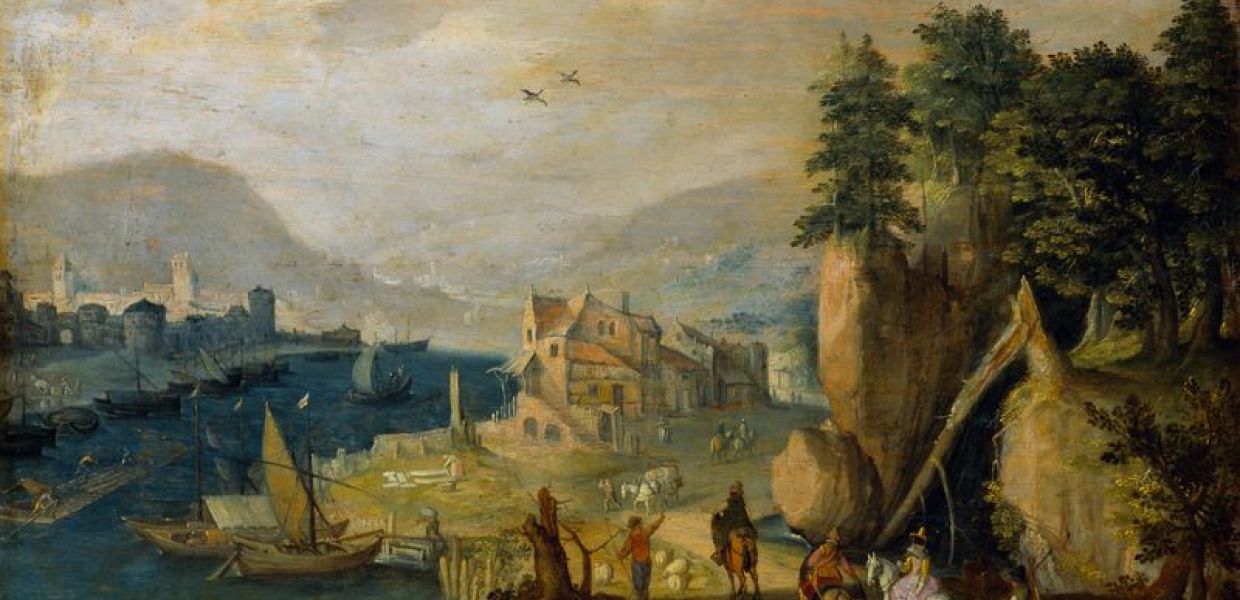European Migration - what we are learning and what we know for sure
More than halfway through Europeana Migration, we stop to highlight some key takeaways already gained and get a word from our Chief Culture Officer Zubia Naqvi on the importance of multiculturalism and a globalised Europe.
Europeana Migration - what we've learned
In celebration of the European Year of Cultural Heritage in 2018, Europeana has been running a series of collection days and events involving cultural heritage institutions across Europe that focus on migration. We have now begun the process of unpacking the lessons learned and findings that have come of an exploration of migration both in and out of Europe.
It came as a surprise to us when political conversation centred on comments suggesting that migration into Europe was causing a loss of European culture. Because in August of 2018, after an intensive eight months of getting to the heart of migration, we couldn’t disagree more.
This month, we have been spotlighting the cultural impacts of communities as we launch the Europeana Network Communities. This focus is also prevalent on Europeana Collections, with stories of migrant communities and their positive impacts on society showcased. The key learning that is increasingly coming out of these stories is that we function better in diverse communities - whether it be the broad special interest communities at Europeana (led by Foundation and Members Councillors from around the world) or the diverse migrant communities of Europe and beyond.
Communities, culture and inward migration
Highlighting this point, EPIC The Irish Emigration Museum, Dublin is offering to celebrate emigration and its great cultural impact on their August 18-19 Europeana Migration Collection Day event: New Irish Communities.
EPIC museum curator Nathan Mannion says that it wouldn’t be possible to discuss Ireland and Irish communities today, without exploring the fact that these communities are made up of people from many cultures and nationalities.
Nathan says, ‘Various different nationalities are living in Ireland today; some are Irish citizens. [We aim to] invite them to share their stories in particular. There is a whole host of nationalities that are engaging with the museum at present, so the focus on inward migration was an obvious choice.'
So far, we've held six collection days in six European countries, collected over 200 stories from members of the public relating to their or their families' experiences of migration. We've heard stories of children, parents, grandparents, stretching across 17 decades, from 1837 until today, and more than 70 countries. People of all ages have taken part: the youngest just five, the oldest 92. Just over the midpoint in our exploration of the topic, the message is clear: migration has strong democratising power and creates a space for exchange.
Diversity as a strength, not a weakness
And our findings don't just come from our external campaign. They are also evident when looking at the staff within our own organisation. Chief Culture Officer Zubia Naqvi says that Europeana Foundation’s 26 nationalities is one of its strongest assets and greatest core strengths as a workplace community.
Zubia says, ‘We are a multicultural, diverse and dynamic group of people that work together because we believe that we can transform the world with culture. We see our diversity as a catalyst for change because we want to keep evolving, actively working, using our skills, and working with culture and technology to contribute to a more dynamic society.’
We are still learning about European migration, and understanding everything that makes up European identity. But what we know for sure? Cultural sharing does not equate to cultural dilution. This is key to what we believe at Europeana, and we hope throughout the European Year of Culture Heritage to amplify the messages and stories of Europeans, no matter their journey.
In addition to the next event in Ireland, see the full list of planned collection events around Europe in 2018. See the stories we have collected so far, or share your own.

